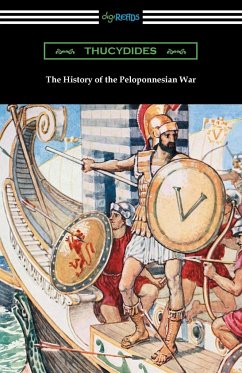The classic account of the Peloponnesian War by Thucydides, translated by Richard Crawley. An Athenian general who served in the war, Thucydides relates the invasions, treacheries, plagues, amazing speeches, ambitions, virtues, and emotions of the storied conflict between Athens and Sparta in a work that has the feel of a tragic drama. Though in part an analysis of war policy, The History of the Peloponnesian War is also a dramatic account of the rise and fall of Athens by an Athenian man.








